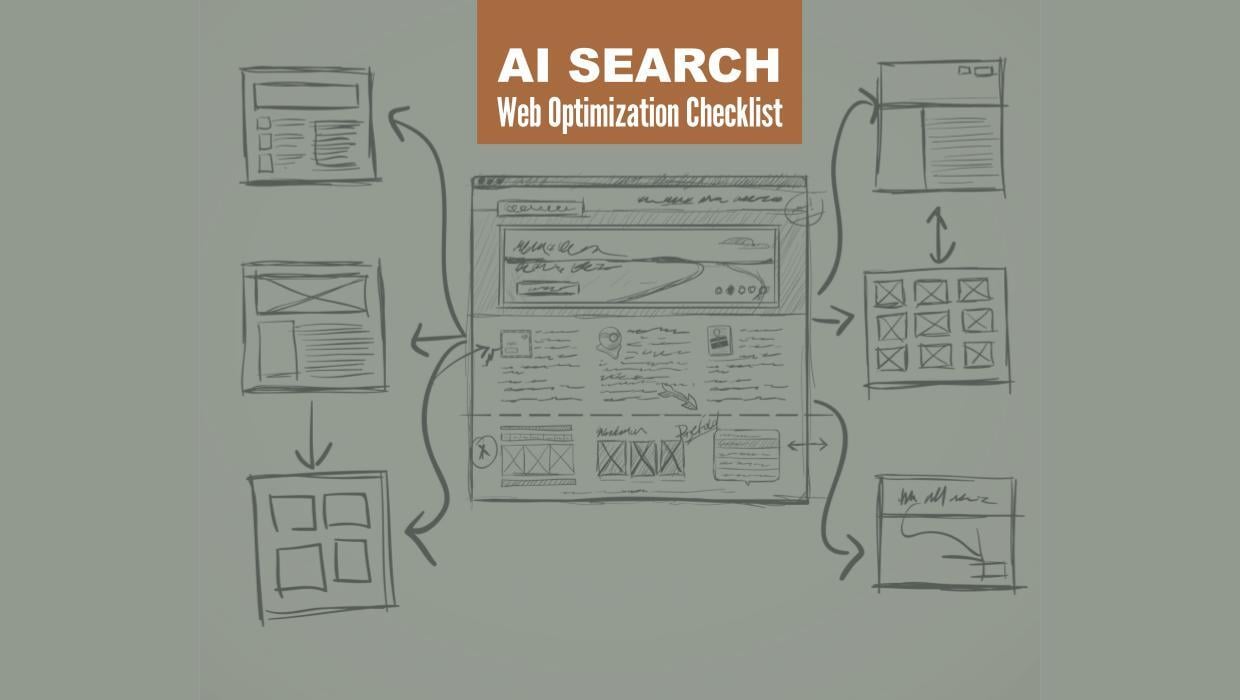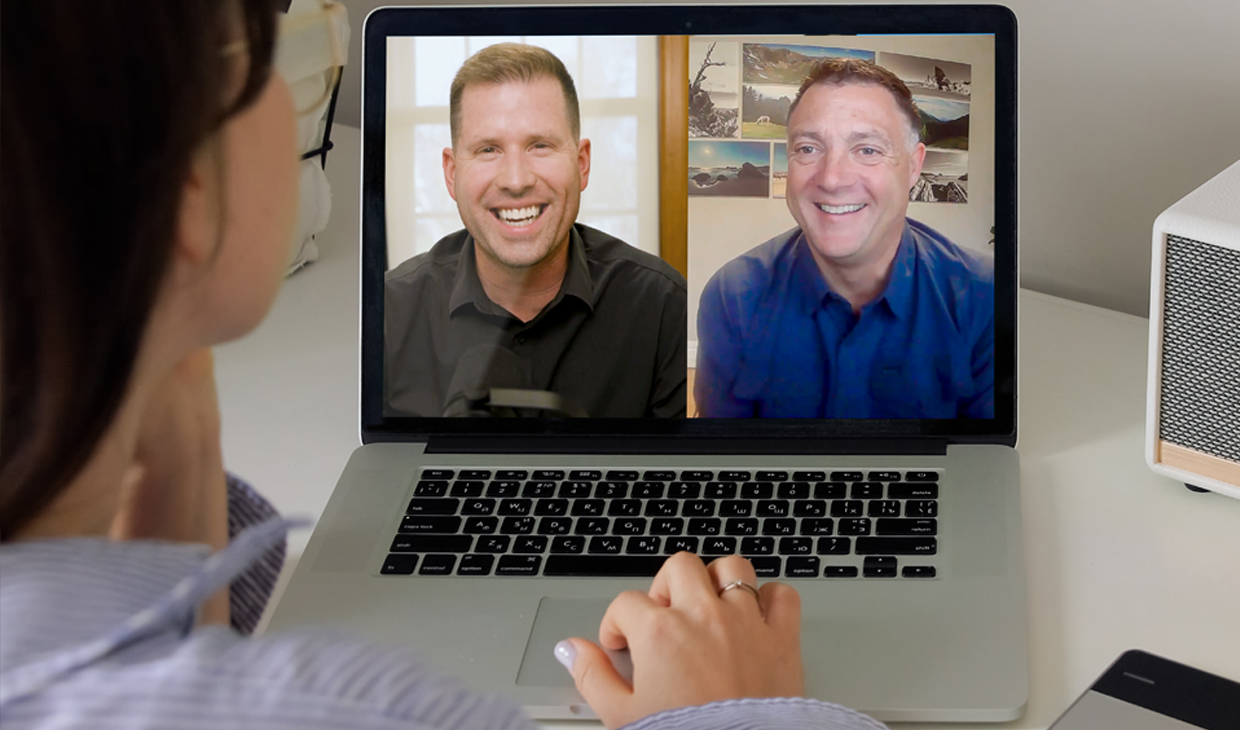Understanding AI Agents & Their Potential: Real-World Examples for Marketers
Written by
In case you missed it: This bonus episode of The ChangeOver revisits a memorable conversation with Sam Mallikarjunan from Agent.ai, where we discussed how AI agents are transforming how businesses operate especially in sales and marketing.
When we first started talking about AI agents on The ChangeOver podcast, it felt like something on the horizon — close enough to explore, but not quite concrete. That’s changed.
Since we talked, the Weidert team’s been building and experimenting with agentic tools to automate and assist in data gathering, analysis, reporting, and more. From meeting summarization to automating first-draft content creation to real-time insights from analytics dashboards, these tools are no longer a novelty. They’ve quickly become part of how we work.
This mini-episode with Sam is the conversation that lit the fuse for me. If you’ve been curious about what AI agents are and why they matter — especially for marketers — this one’s worth your time.
Check out episode 26 of The ChangeOver, then subscribe on Apple, YouTube, Spotify, Weidert.com, or your favorite podcast app.
What Is an AI Agent?
Before diving into experiments, I needed clarity on the concept.
Sam put it simply:
An AI agent... can take actions on your behalf. So it has agency in the literal sense.
— Sam Mallikarjunan, Agent.ai
So it’s not just a tool that tells you what to do. I’s not just a tool that does what you tell it. It’s a system that takes autonomous action on your behalf, based on the goals and context you provide.
RELATED: What is an AI Agent? Get our free study guide.
Agents Talking to Agents: The Next Layer
Sam also shared something that really reframed the future for me:
Your agent is going to get all the information from my agent... and help you make that decision better.
Imagine two agents negotiating the best solution — one working for your buyer, the other for your sales team. That’s not sci-fi. That’s coming faster than most of us are ready for.
We’re exploring what this might look like inside Weidert Group, especially for early-stage client discovery and content personalization. And while we’re not handing over the keys, the AI co-pilot role is growing.
What We’re Learning by Building Our Own
When I asked Sam what advice he gives marketers and salespeople, he flipped the question back to creativity:
The biggest impediment is the blank page problem.
That struck a chord.
So instead of trying to immediately solve a business-wide challenge, we started smaller, building tools to help scrape, gather, and analyze data. Team members have built agentic GPTs that repurpose content into multiple formats. And we’ve developed an internal process to make it easier for team members to get the experienced help they need to plan and build new solutions.
What’s working for us right now is starting with pain points, not platforms. We didn’t start by asking, “What tool should we use?” We started by asking, “How much of my day could I get back?”
No Need to Speed Up the Spam Machine
I appreciated Sam’s candid warning:
“Don’t take the lazy way — how do I spam more efficiently at scale? That’s a reason to bomb.”
We’ve all seen what happens when automation gets disconnected from strategy. So we’ve set a few internal ground rules; every agent we experiment with must meet one or more of these goals:
- Improve human creativity and problem-solving
- Enhance client and and employee experience
- Free up time for deep and high-value work
If it doesn’t meet one of those, we don’t pursue it.
Advice to Marketers
You don’t need to be a developer to start. What’s needed is curiosity, humility, a little patience, and a tolerance for imperfection. Don’t expect to start off building things perfectly. Or using them perfectly. And yes, your first few experiments might break. But that’s the price of learning something new.
“Take a step in between there,” is what Sam told me. That’s what we’re doing.
If you want inspiration, check out sites like There’s An AI For That or Agent.ai. See what others are building. Then ask yourself: What jobs do I do that feel like time sinks?
That’s where your first agent should live.
FULL TRANSCRIPT
GREG: Hi. I’m Greg Linnemanstons, president of Weidert Group. On this episode of The ChangeOver podcast, we're learning how AI agents are helping businesses of all types overcome labor challenges, improve efficiency and quality, and more. Joining me is Sam Mallikarjunan.
Take us back to when agents first started to appear, when they started to show up as parts of products that all of us are using all the time. When would you say agents first start showing up?
SAM: So to take an even slightly bigger step back, an AI agent versus just, like, the kind of AI and general machine learning that we’re used to, the main differentiator is that it can take actions on your behalf. So it has agency in the literal sense, not the philosophical sense. Just like you'd have a buyer’s agent if you were, you know, buying a house or if you were buying stock or something like that, it can take actions on your behalf.
And, historically, AI wasn’t good at understanding why and when it should do things, which is why you had to have a human in the loop. So it would tell us, like, here’s the analytics. Here’s a bunch of data that we’ve crunched about your company and your customers, whatever. Now go do something.
And over the past several years, what it's gotten really good at is knowing what it probably should be doing, because it's vacuumed up the entire internet. There are other ways to do it, but the way OpenAI did it was they vacuumed up the entire Internet and every piece of content humanity has ever created. Yeah. So it can say, like, here’s an email, and it can write the email.
It can even send the email if you kind of trust it that much. So it’s gone from, you know, us kind of letting AI just decide, you know, what ads to show people. It’s very low downside. You’re unlikely to tank your business because you showed the wrong ad once in person.
So now there are very impactful decisions that it’s starting to make. It’s communicating with your customers directly. It’s communicating with your employees directly. So that’s been kind of the history from just analytics and machine learning through to our kind of first exploration as marketers with AI agents, Facebook ads, now to, you know, who’s real on the Internet anymore.
Right? Like, I get so many messages on LinkedIn. I’m sure half of them aren’t actually real people.
GREG: Yeah. Yeah. I've actually I was following a discussion on somebody’s LinkedIn post, and it was questioning how are we gonna protect ourselves from all of the ping-ponging that’s gonna be going on between agents and recognizing, how do you ferret out the human there?
SAM: Yeah. I mean, I think that will be a really interesting thing is, you are going to have your own agent.
And that actually is the AI in aAgent.ai. Right? Like, we have a marketplace, and its job is to know you really well and your job and your title, your company, your competitors, your preferences. And then based on what you’re trying to do, it will decide what agents you should use.
It’ll feed them the appropriate data. And so it will, it’s gonna be agents talking to agents, and they have different incentives. Right? So I might have an agent whose job is to sell you something.
You might have an agent whose job is to make good purchase decisions, just like you would under a normal, you know, me-talking-to-you kind of scenario.
But your agent is going to get all the information from my agent and from everybody else’s agent. It’s gonna synthesize that, help you make that decision better. So I don’t think it’s an issue if agents end up taking a lot of the emails and PowerPoint presentations and, you know, recorded sales demos and everything else like that, and taking a lot of that work off of our plate and just doing that with each other until they can figure out, you know, what decision should it recommend and what should what should it decide.
So there's definitely gonna be some ping-ponging, but I think that's a feature, not a bug, because that means that we don’t have to.
And the assumption is, that ping-ponging is adding value, and it’s moving us or protecting us from the low value and saving our time for the highest human value.
I spend a lot more of my time doing interesting things like podcast interviews and a lot less of my time in meetings and, you know, and status reports and that kind of stuff, because I have agents that just, like, attend the meetings for me and summarize the things that I actually would have cared about. So I didn't need to sit in a one-hour meeting to get the seven minutes of content that I would have found interesting. And, you know, learning Spanish, getting better at chess, and doing podcast interviews, like, do whatever you want with the more free time that you have.
GREG: So what advice are you giving to marketing and salespeople on building agents? Because it sounds like there’s no impediment. There’s no barriers. Your own creativity?
SAM: Yeah. The biggest impediment is the blank page problem, right? Everybody that I talk to, they’re like, what can I do with AI agents? It’s such a hard question to answer because the answer is a lot.
You know, it can be straightforward. Summarize my day, draft an email, analyze the data for me, etcetera. It can be quite soft-skills oriented. So I have a friend who has some communication challenges and struggles, and he uses AI to rewrite his text messages to his family and friends to just try and communicate better.
I think the biggest piece of advice I'll give is don’t take the lazy way, which is how do I spam more efficiently at scale? Right? And that’s what most of what we see today is. Right?
Like, LinkedIn is just nonsense. Email marketing is insane. SEO is insane.
And it’s because everybody’s trying to, instead of taking this technology and saying, ‘How do I spend more time engaging in human interactions with my customers or giving my people more time to to think deeply and creatively?’ They’re instead just saying, like, how can we write two thousand blog articles a month? And that’s just a reason to bomb. So the number one number one piece of advice I’d give is figure out your own blank canvas thing.
So there are sites like theresanaiforthat.com, Agent.ai has a bunch of examples, etc., where you can just go see what other people are doing, and then build one that’s just for yourself personally. One of our first builders, before we opened it up, they built a Dungeons and Dragons AI, which is apparently quite a complicated thing. There’s these books you need to read, and there’s all kinds of stuff that I don’t know about. But it was apparently quite time-consuming.
And once he was able to build one for that purpose, he then understood AI agents better and could start building ones that are more interesting for, you know, sales prospecting and customer research and product design and all those kinds of things.
So get inspired. Go out there and, like, look at things that other people are building. Think deeply about your day, and what are the things you do that suck, right? Like, I hate being in meetings.
And then just start with something that, you know, the stakes are low, right? Like, if that AI agent hadn’t worked out for him, he would have been able to be okay with it. I think right now, we’re all worried that it’s not gonna be perfect. We’re not gonna build it perfect. We’re not gonna use it perfectly, and then it’s gonna do something that’s gonna get us in some trouble.
And so, like, take a step in between there.
Subscribe To Our Blog
Information. Insights. Ideas. Get notified every time a new Weidert Group blog article is published – subscribe now!
You May Also Like...

Search Engine Optimization
Optimize Your Industrial Website for AI Search

Marketing Technology
Why Unified Data Efforts Fail (and How Manufacturers Can Fix It)

Search Engine Optimization
How Falcon Rebuilt Industrial AI Search Visibility in 2025
Accelerate Your Growth with
Weidert Group
If you’re ready to explore a partnership, request a personalized consultation with our team.

